

Who We Are
The Network for East Anglian Collaborative Outreach (neaco) is one of 29 partnerships across England funded by the Government through the Office for Students (OfS) as part of the Uni Connect Programme. neaco is a regional collaboration of universities and colleges throughout East Anglia. Together we work with students at secondary schools and sixth forms/ colleges, who live in areas identified by the Government with low rates of progression to Higher Education and students from groups that are underrepresented in Higher Education, including adult learners.
Our partnership includes five Higher Education Institutions (HEIs) and eight Further Education Colleges (FECs) in East Anglia.
What we do
We provide a wide range of impartial, collaborative outreach activities to equip students from Year 7 through to adult learners, to make informed choices about their options in relation to the full range of routes into Higher Education and to minimise the barriers they may face when choosing the option that will unlock their potential, including those relating to academic attainment. Our activities are delivered through the Take Your Place programme and our offer is designed to be tailored to the individual needs of the school/college.
Delivery
To deliver this work, neaco employ a team of Higher Education Champions and Access and Participation Officers, who are all experienced education and outreach professionals based in schools and colleges. The team facilitate sessions in schools, organise external speakers and events and coordinate trips to university campuses. They also work with parents/carers and the local community to ensure young people are fully supported. Some of our activities are co-designed or co-delivered with Academics from our university partners and/or third sector organisations and we often support these activities with Student Ambassadors as we believe they provide an inspirational role model to young people.
This report showcases some of our amazing work from 2023, including why we do what we do and the impact of our work. We hope you enjoy reading it. If you would like to get in touch to discuss future partnerhsip working, we would love to hear from you. Please email neaco@admin.cam.ac.uk or visit our website for more information at https://www.takeyourplace.ac.uk
Chair’s Foreword and 2023 overview
One of the stand-out features of neaco for me is how effectively our team adapts to change. The positivity with which practitioners embrace new direction has ensured the continuation of outstanding delivery through challenging times. We are trusted by schools and respected by stakeholders. Our work is innovative, impactful and even more important today than when the project was established seven years ago.
This year has seen the development of exciting new work to enhance our understanding of the challenges faced by particular high priority groups of students across the region, through the creation of Community of Practice Groups. These Groups have brought together a wide range of expert stakeholders to collaborate on finding new approaches to address specific challenges.
An exercise in mapping current provision across the region to better understand gaps has also been undertaken, shedding new light on where provision is strong and where there’s more to do. This has involved working in close collaboration with widening participation teams across our network, something which is key to the future role of neaco in the region.
In a year when most Higher Education Providers in the country are writing new Access and Participation Plans, the role and profile of neaco is more important than ever. In this context, the diverse series of attainment raising activities being piloted this year are particularly relevant, directly aligning with OfS priorities. A strong focus on evaluation has always been a hallmark of neaco, and this again puts the project in a position of real strength at a time when the Director of Fair Access, John Blake, has said his first priority is “evaluation, evaluation, evaluation” – to understand whether our work is having impact is always critical, but even more so in challenging financial times.
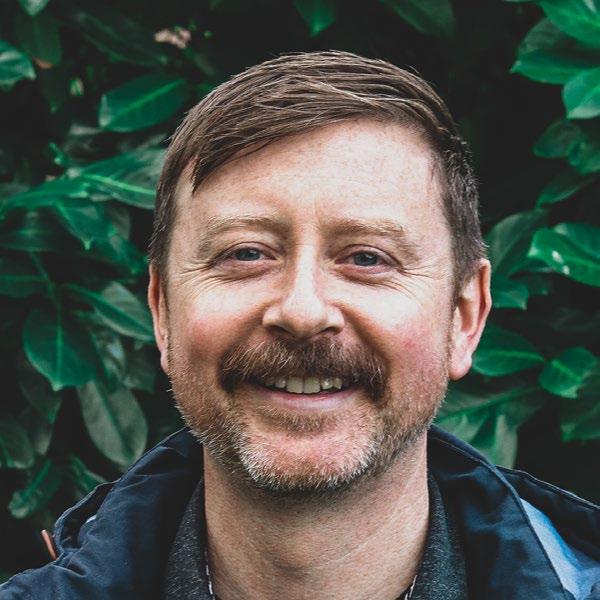
2024 will bring new challenge and we can expect to have to adapt to further change. We will likely have a general election, the outcome of which will help shape future direction and priorities for national widening participation work. Closer to home we will have a new Project Lead to drive the partnership forward, and I’d like to take this opportunity to thank Angela Wright for her outstanding contribution to neaco – she will be a hard act to follow!
Whatever comes next, I am hugely confident that the future for neaco is bright. We are doing the right things in the right ways. Most importantly, the talent and commitment of our team makes the project perfectly positioned to continue transforming the lives of young people across East Anglia for many years to come.
Tom Levinson Chair of the Steering Group Network for East Anglian Collaborative Outreach
The year in review
Total number of schools and sixths forms engaged with 141
Total number of Further Education Colleges engaged with 8 Students Engaged
Total number of target students engaged
11,406
Stamford College
Stamford
Cambridgeshire & PeterborougH
All Students: 7,887
Uni Connect Target
Students: 1,995
NORfolk
All Students: 16,823
Uni Connect Target
Students: 5,306
SUFfolk
All Students: 10,767
Uni Connect Target
Students: 4,040
Anglia Ruskin University Peterborough
University Centre Peterborough Peterborough
Peterborough College Peterborough
Cambridgeshire & Peterborough
Cambridge Regional College
Cambridge
University of Cambridge
Cambridge
College of West Anglia King’s Lynn
College of West Anglia
Cambridge
Anglia
Ruskin University
Cambridge
Total number of activities delivered
5,669
Norfolk
Easton College Easton
West Suffolk College Bury St Edmunds
University of East Anglia Norwich
Norwich
University of the Arts Norwich
City College
Norwich Norwich
East Coast College Great Yarmouth
Total number of students engaged
37,723
East Coast College
Lowestoft
SUFfolk
University of Suffolk Ipswich
Suffolk New College Ipswich
Total number of external partners collaborated with 36
WORKING IN PARTNERSHIP TO SUPPORT ATTAINMENT RAISING
In 2022/23 the Office for Students (OfS) asked Uni Connect Partnerships and their Higher Education providers to do more to raise the academic attainment of pupils in Years 7-11 through access and participation activities. In response to this, we consulted a variety of key stakeholders including schools, academics and third sector organisations and created a range of initiatives that support raising attainment. In 2022/23, we piloted some of these initiatives to assess what works best. Our initiatives linked to specific activity types defined by the OfS as ‘targeted academic support’, ‘tackling nonacademic barriers to learning’ and ‘upskilling and supporting staff’. As a partnership we wanted to create a range of initiatives that drew on the specialisms within our network and aligned with our regional priorities. The insights we gained from our pilots have enabled us to develop a broad range of programmes, with embedded themes; oracy, literacy, study skills and metacognition. These programmes have been co-designed by our university partners. On the next few pages, you can read more about these programmes, along with the evaluation findings on page 20.
OUR EMBEDDED THEMES:
Oracy
Research (Mercer and Littleton 2007; Mercer 2013) demonstrates that oracy skills, the capacity to develop and express ideas through speech, play a key role in students attainment levels alongside numeracy and literacy; yet it remains an underdeveloped aspect of school curriculum in comparison with the latter. This is especially true for students from disadvantaged backgrounds who have less opportunities to access programmes that support oracy.
Oracy education is popularly assumed to be about public speaking or debating. However, it also involves ‘purposeful talk’ (APPSG) which is vital for students to develop listening, learning, and speaking skills. Put simply, oracy is learning how to talk, and learning through talk.
Oracy has been proven to improve academic outcomes, enhance student confidence and self-esteem, and strengthen soft skills that are vital for later life. Oracy skills support effective engagement in HE and other pathways. They enable students to listen, articulate their views, challenge others, and reach consensus in socially confident ways (Heron 2019). Oracy skills also prepare students for life in the workplace, whereby they will be expected to ‘perform’ in interviews, presentations, important meetings, empowering students to use different registers, tones and adapt their communication as required.
We have committed to embedding Oracy skills into many of our attainment raising initiatives, working in collaboration with Talk the Talk, Debate Mate and Oracy Cambridge.
Literacy
Literacy, understood as reading, writing, speaking and listening skills, has wider implications in the context of secondary school education. Students are expected to develop “disciplinary literacy”, applying more sophisticated subject specific language, knowledge and communication. They also need to think across subjects, analyse and synthesise different areas of information, and express them in coherent and convincing presentation in speech and writing. In that sense, literacy operates across the curriculum, shaping students’ understanding of various subjects.
The effects of literacy go beyond the curriculum. According to the 2012 National Literacy review, one in six adults struggles with literacy, and their literacy level is below
what is expected from an 11-year-old. The 2011 Ofsted report underlines that “If young people and adults from disadvantaged backgrounds are to have better life chances, they must be helped to achieve at least the standards of literacy necessary to function effectively in society”.
Our attainment raising initiatives have a strong focus on literacy, through subject-specific programmes and in conjunction with their oracy skills.
Metacognition and Study Skills
Metacognition is simply ‘thinking about thinking’, giving students the skills to monitor, direct, and review their learning. Effective metacognition strategies get students to think about their own learning through planning, monitoring and evaluating their own academic progress.
According to the guidance report by the Education Endowment Foundation (EEF), “Evidence suggests the use of ‘metacognitive strategies’ can be worth the equivalent of an additional +7 months’ progress when used well. However, while the potential impact of these approaches is very high, particularly for disadvantaged pupils, less is known about how to apply them effectively in the classroom.”* In that respect, supporting disadvantaged students in metacognition projects is key in addressing and closing this gap in the curriculum.
Study skills is developing key strategies for effective and independent study and learning. As commonly understood, study skills programmes teach practical revision techniques such as re-reading, note-taking, highlighting, pair work, creating mind maps and flashcards; however, there is much more depth to it. Study skills education involves learning planning and prioritising, such as getting prepared, effective use of study space, avoiding distraction, and creating timetables. Moreover, it engages with productivity methods such as setting SMART (specific, measurable, achievable, relevant, and time bound) goals, breaking down tasks to manageable chunks, as well as time management tools like the Pomodoro technique. Lastly, study skills also aim to teach students about maintaining their well-being to avoid burnout and loss of motivation.
According to research (Mannion and Mercer, 2016), metacognitive and general study skills education has an important role in raising attainment, and a wholeschool intervention in metacognitive study skills led to a significant improvement in the attainment gap between Year 9 Pupil Premium pupils and their peers.
Our initiatives with a strong focus on metacognition and study skills aim to foster proactive learning skills and raise cross-curricular attainment.
*Metacognition and Self-regulated Learning | EEF (educationendowmentfoundation.org.uk)
SUPPORTING STUDY SKILLS
Neaco’s Study Skills Attainment Raising project is designed to support students in Year 11; helping them to feel confident and prepared as they begin their GCSE revision. The programme was piloted in 2022/23 and, following a successful year of delivery in schools across the East of England, was revised for the 2023/24 academic year and continues to be delivered by neaco Higher Education Champions. The Study Skills programme, in its latest iteration, is made up of three strands; Preparing to Revise, My Revision and Looking After Me. Each strand includes a variety of core assemblies, workshops, activity packs and wraparound activities for teachers and tutors to deliver during their pupils’ form time. Due to the programme’s flexibility in terms of delivery options, schools are able to tailor the programme to the needs of their students, selecting the activities they feel would be most beneficial. Schools generally opt for assemblies to be delivered to all their Year 11 pupils, while the follow-up activities are often only delivered to select groups of students who the school feels will benefit the most from a more in-depth and personalised engagement.
Creation of the programme entailed collaboration between neaco and the Exam Study Expert. Founder of the Exam Study Expert, William Wadsworth, was able to provide specialist guidance and support to the neaco team, assisting in the creation of several key resources, particularly one of our core workshops titled, ‘How to Revise: Making Information Stick.’ This interactive workshop provides detailed insight into the way we learn best, and how to make information stick in our memory long-term. The workshop details two powerful principles for effective learning; retrieval and spacing and how the most successful revision strategies incorporate the concept of spaced retrieval practice
In 2022/23 six schools in Norfolk engaged with the programme, which resulted in approximately 500 pupils receiving study skills support. In the current academic year, eight Norfolk schools have expressed an interested in the programme. Following a full neaco staff training session, co-delivered by The Exam Study Expert and programme creator, Amber Greef, all Higher Education Champions operating in the East of England are able to deliver the programme.
Further information on the impact and evaluation of this programme can be found on page 20.
Amber Greef, UEA Higher Education ChampionWORKING IN PARTNERSHIP TO SUPPORT ATTAINMENT RAISING...
SUPPORTING THE CREATIVE SUBJECTS
Through conversation with schools in the 2022/23 academic year we developed a trial run of an attainment raising programme for local schools within creative subjects. This was piloted with two schools during the Spring and Summer terms of 2023. We wanted to make sure that the work was as undisruptive as possible and so arranged to visit students in their normal lessons. 1:1 support was given to students who were identified as being in particular need, especially those who were not on target to receive a Grade 5 or above in their creative GCSE. This had a positive impact on the grades of the selected pupils, and we received feedback that the students were more confident in their ability to produce work and ideas to benefit their GCSE studies.
Once feedback from the trial was received, we sought to expand the programme to more schools within the region. Schools were identified based on numbers of identified students, proximity and relationship. We started the 2023 academic year engaging with four schools, with five Year 11 groups and one Year 10. Three of these groups are
studying for an Art GCSE, one for Graphics, and two for Design Technology. We work with each group for two hours per fortnight and work with around five students per session. The focus of these sessions is to suggest ideas for development of the creative work, assist with additional process knowledge and inform on Higher Education routes and careers within the creative industries. The sessions allow identified students a more concentrated intervention which the subject teacher is sometimes not able to offer.
SUPPORTING ORACY AND LITERACY THROUGH OUR CRIMINOLOGY PROGRAMME
During Autumn 2022 neaco, ran a four-week Criminology project at St Peter’s School in Huntingdon with 15 Year 10 students who had expressed an interest in the subject so therefore keen to participate. These students were from widening participation backgrounds and were either receiving free school meals or from targeted postcodes. The programme’s aims were two-fold. Firstly, it served as a lengthy taster regarding a degree subject which can be studied at university but is not available as a GCSE at the school. Secondly the project was a vehicle to support attainment raising at St Peter’s, a school whose Attainment 8 scores are below the national average. Whilst engaged in the Criminology project students were encouraged to undertake independent learning and research in the form of discreet out of school tasks which we were careful not to label as homework. These tasks were not compulsory but would enhance the students’ experience if they engaged. All the students chose to carry out the tasks. The course was also structured to
give the young people some experience of debating and presenting to an audience, learning how to successfully structure an argument.
The project was delivered by a PhD student at ARU and was designed to feel very much like an interactive lecture rather than a conventional GCSE lesson. The feedback from the students was overwhelmingly positive and the school are keen for us to run it again. Students found the project ‘really educational’ and ‘inspiring’ as well as giving them an insight into studying Criminology at university. All students said they were more confident about debating a topic than they were beforehand. The project dealt with the subject of ‘county line gangs’ which is a significant problem in the Huntingdon area and was therefore seen as relevant and topical for the group of students.
Read more about the evaluation of this project on page 20
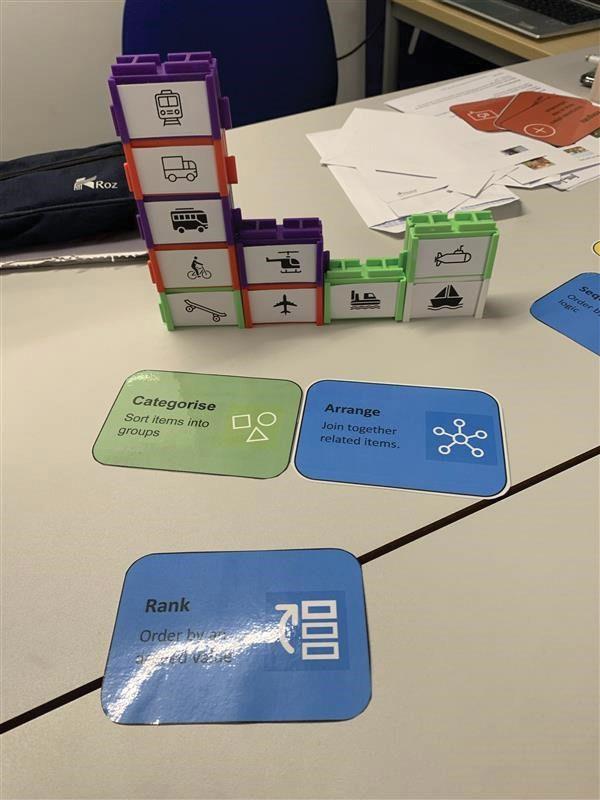
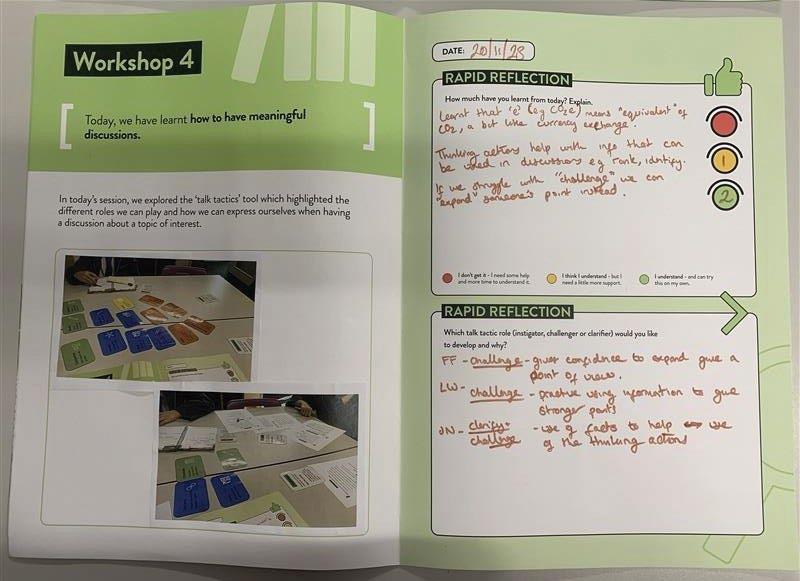
SUPPORTING METACOGNITION STRATEGIES
Make It Count (MIC) is a metacognition project designed to help young people explore the ways in which they learn. This project offers a unique opportunity for Year 7 students who show signs of limited self-awareness when it comes to their learning abilities and/or who lack confidence and resilience when faced with a challenge. Other selection criteria include Free School Meals/Pupil Premium eligible, gender mix and borderline ‘at expected’ for English and/ or maths. MIC aims to create a learning environment that allows young people to explore and develop skills without the pressures of everyday, subject-specific learning. These skills include how to organise information, speak with confidence and break tasks down into manageable, bitesized chunks. Furthermore, these skills have been carefully selected so they can easily be transferred into everyday scenarios in and outside of the classroom with immediate effect.
Delivery of the project is spread over eight x one hourly workshops delivered in Norfolk by the University of East Anglia’s (UEA) Outreach team and neaco team. MIC aims to offer strategic support to schools in raising attainment by equipping their young people with a ‘toolkit’ of lifelong skills so they can become more independent and selfregulating learners. The project uses climate change as its context with a secondary objective to increase awareness of this very current topic but within a local context. As a result, it is hoped that young people are inspired to take climate action within their local communities. Each session, places great emphasis on self-reflection, allowing students time to
work out how these skills can be transferred into their own learning. The reflections are recorded in a group journal and revisited to ensure the ‘tools’ are being embedded.
Since the start of the project launch in February 2023 (now in its second phase), delivery to schools has increased three-fold. The project is due to be delivered across nine schools during the current 2023/24 academic year and early indications of the impact of the project are very positive. Based on facilitator feedback, there is no doubt about the growth young people engaging with MIC make in areas such as their ability to articulate and connect their ideas and speak with confidence and passion. An intense evaluation process has recently begun to allow a full understanding of the project’s impact.
Overall, it is hoped that young people feel more prepared and better equipped to ‘have a go’ at new, less familiar activities with a more positive approach. In turn this will undoubtedly impact on their engagement in lessons which should then feed into raising their attainment over time.
Make It Count has been created in partnership with Structural Learning, experts in the metacognition arena and is based on EEF evidence. https:// educationendowmentfoundation.org.uk/educationevidence/teaching-learning-toolkit/metacognition-andself-regulation
Julie Smith, UEA Outreach OfficerWorking in partnership to support careers education and progression
Neaco’s Progression Framework provides a sustained programme of activities for engaging students, to develop their understanding and ambition for Higher Education, enabling them to make an informed decision about their futures, and equipping them to realise their goals. Our programme of activities align with the Gatsby Benchmarks and form an integral part of school and colleges Careers Strategies. Our work contributes to the achievement of the Matrix Standard and the Quality in Careers Standard.



Supporting Gatsby Benchmarks
Cambridge Regional College’s approach to the neaco project focuses on enhancing opportunities for students to encounter higher education. As neaco activities are closely related to Gatsby 7, we use a symbiotic approach to link quality with student experience: Gatsby helps staff correlate neaco activities with quality standards; neaco helps frame Gatsby 7 in the meaningful context of ‘raising aspirations’.
neaco funding has supported us to offer a range of opportunities for students to encounter Higher Education. These include two Higher Education Showcases, plus guest speakers and workshops throughout the year from a range of universities. Our partnership with our local HEI has been particularly beneficial for expanding these opportunities: regular on-site presence and delivery of group workshops enables students to gain valuable insight from Higher Education providers, whilst enhancing capacity for internal careers advisors to deliver personal guidance for target students.
At the start of their programme, our mature Access to Higher Education students benefitted from a talk from Cambridge University, outlining the UCAS process and raising aspirations for Oxford and Cambridge applicants. In October, they explored options with 18 providers at our Higher Education Showcase. Access to Higher Education students have since taken part in several workshops delivered by a range of HEIs, including degree apprenticeships and student finance, to broaden their awareness of options and support them to make effective applications. Halfway through the academic year, Access to Higher Education students have had at least four Gatsby 7 encounters and, more importantly, accessed a range of support to raise their aspirations and help them make impartial, informed decisions about their future.
Supporting Careers Strategies
Neaco provides financial support towards educational trips that support progression. On 03 October 2023, 41 students on Level 3 Creative Courses from Lowestoft Sixth Form attended the UCAS ‘Create Your Future’ event at Excel London.
This event represents the unique opportunity for students to explore their study options, while learning more about different career paths, creative courses and traineeships offered in several disciplines.
Students walked round the variety of university stalls discussing the creative subjects they offer.
This was an invaluable opportunity for the students to ask questions about the courses and the creative industries sector careers.
The students will be using the information gathered to help them decide on their final five University choices for their UCAS applications.
A number of gaming tech companies were present at the fair and students were able to speak to their employees about their background, studies and career path and gain an insight in to what their day jobs involved.
Our Lowestoft Sixth Form student population is 44% from target post codes and have historically low levels of progression to Higher Education. A number of students on the trip had never been to London and would not have had the opportunity to go had the trip not been funded by neaco.
Student Feedback:
“Looking forward to the future instead of being scared or worried”
“I will now be looking in to going to uni open days and have a better idea of what unis I want to apply for”
“This trip provided a great opportunity for students to experience life outside of Lowestoft and to engage with industry experts. The students who attended engaged with employers and apprentices about their own personal experiences – bringing future prospective qualifications to life from industry experts. This trip involved Gatsby Benchmarks 2, 3, 4, 5 and 7, which will see an overall positive impact on the College’s careers programme and also ensuring that the students will be better equipped in taking their next step.”
Comments from Laura Batson MSc Careers advisor trip organiserWorking in partnership to support careers education and progression
Supporting progression
The introduction of the annual Careers and Progression Faculty Day continues to play a crucial role in enhancing students’ career readiness, by bringing together industry professionals, UCP alumni, and apprenticeship opportunities in a dedicated event.
Students have the opportunity to interact with people who can offer real-world advice and support in their career decision-making process connecting them with valuable resources and networks, and empowering them to make informed decisions as they progress in their academic and professional journeys.
We have expanded the days from just two to 10 a year, running from November to May in alignment with their Inspire Education Group (IEG) Further Education courses.
Our annual Higher Education Fair with the presence of up to 30 universities plays an important role in exposing students to a wide range of universities and educational opportunities, helping them make informed decisions about their future academic paths.
Twice a year UCP offer Higher Education taster events providing students a hands-on experience of various subjects and degrees, allowing them to gain insight into different fields of study which significantly broadens students’ horizons and helping them make well-informed choices as they progress in their educational journey.
The success of these functions and student attendance is attributed to neaco’s strong relationship with all Faculty Heads, Careers Leads, and Student Mentors, who recognise the significance of these activities and assist us by coordinating their students’ participation on those days.
The strategic approach of providing multiple touchpoints throughout the year, helps build momentum and keeps students actively engaged in the decision-making process, ultimately leading to a more informed and wellrounded understanding of their options.
By the time our students are ready to leave college, they have been exposed to a variety of resources, events, and information that have equipped them with the knowledge and confidence to make unbiased decisions about their future academic and career pathways.
Overall, we are proud of our commitment to providing consistent Higher Education aspiration and support which complements our IEG careers departments as they navigate their post-secondary education in empowering them to make informed decisions and progress successfully in their chosen fields.
Ruth Hovell - TYP Operational Lead Inspire Education Group Peterborough and Stamford College
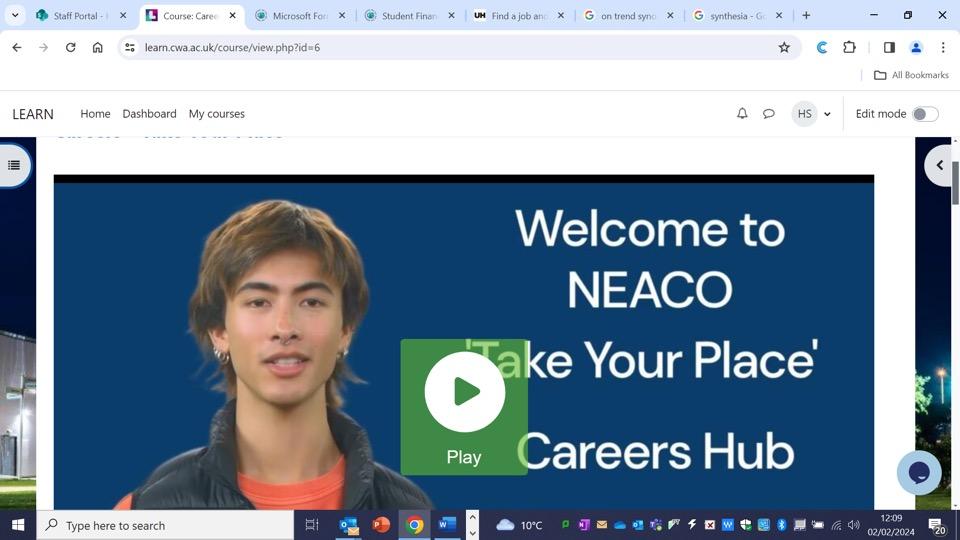
Synthesia (AI based technology)
Read what one of our Higher Education Champions, Haley Smith, based at the College of West Anglia has been working on since September 2023.
“I have created a series of Synthesia (AI based technology) video presentations on the topic of Employability. I asked several student groups which AI they had a “bias” towards, and they predominantly chose a character called Kamzi, who resembles a person who originates from South Korea. Given the current trend with all things K-Pop and K-drama, I think we have a very in style AI presenter!
These are posted on our LEARN VLE platform. The decision to do this was based on student feedback where many students reported they struggled to read large volumes of text or were put off by the presence of the written format. The video presentations cover
• How to choose a career / job
• How to find vacancies and look for work (online, job centres, social media, cold calling etc)
• How to create a CV and use this when applying for jobs online or at career fairs etc
• How to prepare for interviews
• Retaining a job once in employment
To support these videos, I have also created a series of workshops with the same title. These workshops are very interactive and require the input of students throughout. I have beta tested these with all of the neaco students undertaking Level 2 Hair and Beauty and will do the same with Level 3 students after half term.
So far, all the sessions have been evaluated. Interestingly, many students have commented that they find them useful as they feel they pertain to the “real world”.
I am hoping eventually to create Synthesia presentations for all topics related to neaco on our LEARN page. I look forward to reporting on progress next February 2025!”
Supporting Careers Education
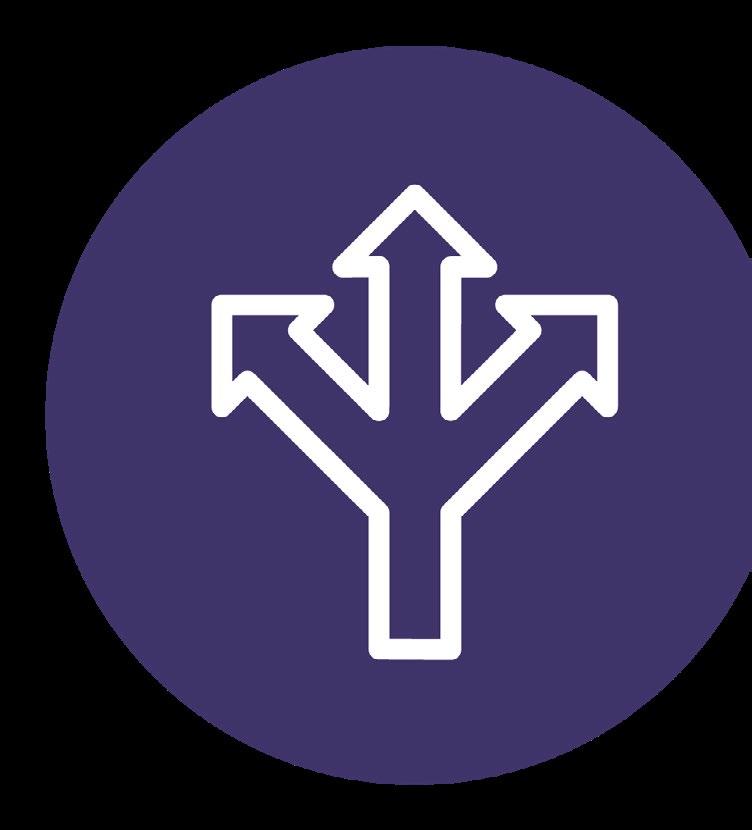
The Take Your Place program has played a pivotal role in organising and delivering multiple events aimed at allowing students to link their subjects to real-world applications in different careers or sectors. Notably, we ran a ‘Careers Brunch’ at Paston College, which involved inviting multiple employers from a range of industries into the College. The event aimed to provide clarity and offer alternative pathways to students who were unsure about their next steps after college. Each employer delivered a session discussing their respective industries, with a large emphasis on clarifying the pathways available to students interested in pursuing apprenticeships, degree apprenticeships, or employment within their companies. We also encouraged each speaker to highlight which A-level or T-level subjects would be a suitable fit for each position. Following the session, we then provided provisions to the students and gave them a space to engage directly with the employers to discuss further opportunities.
The feedback we got from staff and students was positive, with the event providing some clarity regarding what jobs are available upon completion of College, and some alternative pathways to them. One student commented, “I wanted to become an Engineer but didn’t want to just study at University, so hearing I could become an engineer through a degree apprenticeship was surprising”. Additionally, we found students appreciated the nature of the event, and the focus away from the University “Most talks are always focused on going to University, so it was nice to hear about different options”.
Take Your Place is in the process of running similar additional events across Paston, City College Norwich, and Easton College
WORKING IN PARTNERSHIP TO SUPPORT STUDENTS FROM UNDERREPRESENTED GROUPS
Phase 3 of the Uni Connect programme (2022 onwards) has seen us expand our remit to support groups of learners who are under-represented in Higher Education to make informed choices about their options and help mitigate against barriers to their progression to Higher Education. We have established Communities of Practice and Working Groups with representatives from our University and College partners, as well as external contributors, to create a network of professionals which brings together a range of voices and perspectives that focus on activities for specific student groups.
Supporting Care-Experienced Learners
Care-experienced learners are one of the least represented groups with significantly lower rates of progression to HE and likely to have multiple intersections of disadvantage. 13% of pupils who were looked after continuously (for 12 months or more) progressed to HE by age 19 compared to 43% of all other pupils. Furthermore, the proportion of care experienced students attending higher-tariff universities has remained at 1% for the last decade, while for their peers who do not have experience of care, the proportion has risen by three percentage points, to 11%.
Evidence tells us that there exists a large attainment gap between children in care and their peers due to disruptions in their education, and those care-experienced learners who do progress to Higher Education tend to progress later with lower-level qualifications.
Within East Anglia, there already exists a strong network and positive collaboration between neaco, University partners, local authorities and virtual schools. There are several established outreach programmes from our University partners, with the majority of current activity focused on post-16 learners.
Building on this existing network, we have established a collaborative working group with members from University and College partners, virtual school and local authority teams to develop a pilot programme of activity for careexperienced learners in Key Stage 4.
The pilot programme, Future You, has three strands: a menu of on and off campus activities and subject taster days; a progressive series of nine workshops focusing on academic self-efficacy and CPD sessions for key influencers to support their knowledge of local HE options.
We have created an at a glance resource to highlight what support is available for care-experienced learners at our HE partner institutions which can be found on the new careexperienced learner section on our website and updated our ‘Guide to HE applications’ for care-leavers booklet.
We look forward to seeing the pilot come to fruition and plan to expand the programme next year to include community awareness events, a Further Education transition support element and incorporate new activities informed by the needs and interests of this years’ participants.
Free School Meals (FSM)
In the UK, students are eligible for Free School Meals (FSM) based on family income. Data published by the Department for Education in June of 2023, shows that as of January the same year, 23.8% of the UK school population now qualify for free school lunches.
Students who are in receipt of free school meals are on average behind their peers in terms of attainment at every Key Stage. The attainment gap is most prevalent whilst students are at secondary school. Data published for GCSE attainment in 2022 showed that 47% of pupils eligible for free school meals achieved a standard pass in both Maths and English GSCE. This is concerning, when compared with 75% of students not eligible for FSM, achieve a standard pass in both Maths and English. This identifies an attainment gap of around 28%.
This data is not just demonstrative of attainment gaps, it uncovers a wider longer-term impact for students who are economically disadvantaged. Data from the Office for National Statistics tells us that being a FSM student has longer term implications on employment and economic outcomes, with 42% of students in receipt of free school meals recorded wages below the Living Wage at the age of 25.
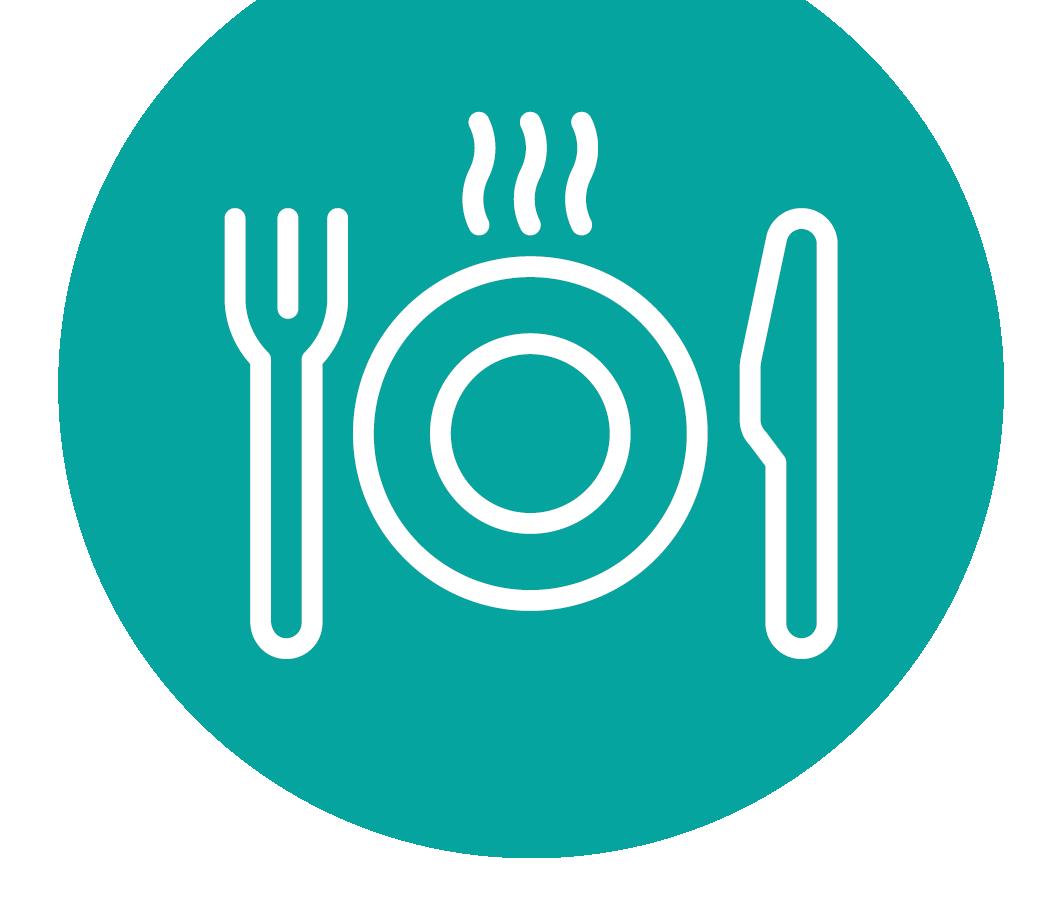
Whilst it is important to look at the data it is also vital, as staff working within schools and the Widening Participation sector, to look beyond the figures and identify what the experience of being a free school meal student is like. Students eligible for free school meals are more likely to experience difficulties at home; for example, families on a lower income may have challenges affording necessities such as heating, electric and internet services. Not forgetting, school essentials such as uniform, stationery and IT equipment.
With the statistics showing a stark reality for students eligible for free school meals, it is no surprise that the FSM metric was identified by OfS as a risk to equality in their Risk Register published in 2023
Read about one of our projects to support these students on the next page…

WORKING IN PARTNERSHIP TO SUPPORT STUDENTS FROM UNDERREPRESENTED GROUPS
SUPPORTING FREE SCHOOL MEAL (FSM) BOYS
The importance of working with FSM students can be illustrated in the work Niki Reilly is conducting at Stanground Academy in Peterborough with male FSM students. Following academic research carried out with Dr Liz Bradbury at ARU (Anglia Ruskin University) (Arts, Humanities, Education and Social Sciences Faculty Director of Studies – Boys Own Stories) a six-week project was designed which focused primarily on how to support FSM male students in developing a sense of belonging in academia/education as well as providing a safe space for them to consider what motivates them and how that can be translated into success at GCSE and beyond.
The project was designed to allow for students taking part to reflect on their own perceptions of education and their place within it and was purposefully focused on how they can improve their own educational outcomes. The six-week programme include sessions on motivation theory, study skills, metacognition as well as the opportunity to explore their own sense of belonging
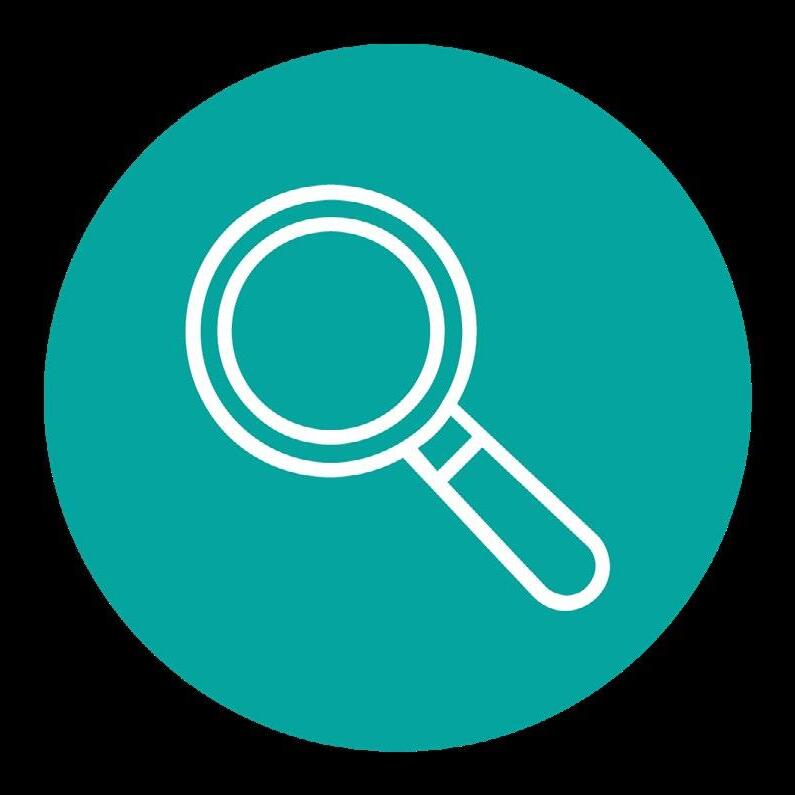
Evaluation of the pilot programme included exploration of student, parent, and teacher voice alongside, examination of hard data as well as comparison with a control group of male students for similar backgrounds. 67% of participants made progress in terms of their approaches to learning skills and 27% achieved their target grades at GCSE which allowed them to progress on to sixth form, when they were not sure this was the right pathway for them prior to the programme starting.
Following the extensive evaluation of the pilot programme, Niki Reilly now plans to deliver this project again at Stanground Academy in February 2024 and hopefully in other neaco schools in the region. Niki attended the Boys Impact Conference in September 2023 where the call for collaborative work in this crucial area was met with excitement and enthusiasm. Alongside the work done so far, CPD for school leaders and teachers on how to implement a “taking boys seriously” strategy in schools is currently being planned with the support of Deneen Kenchington, a Deputy Head Teacher who is leading the way in this field at her school in Dorset.
Niki Reilly – Higher Education Champion (ARU)“I saw a real change in motivation and attainment from my son during and following the project”
“I noticed a difference in how my son felt about his learning.”
Parent feedback:
“Niki made it clear that the programme would help us do our best in our GCSES. She focused on our strengths.”
“The sessions were really useful. I enjoyed exploring what motivates me. I also found the workbook helped me focus.”
Student feedback
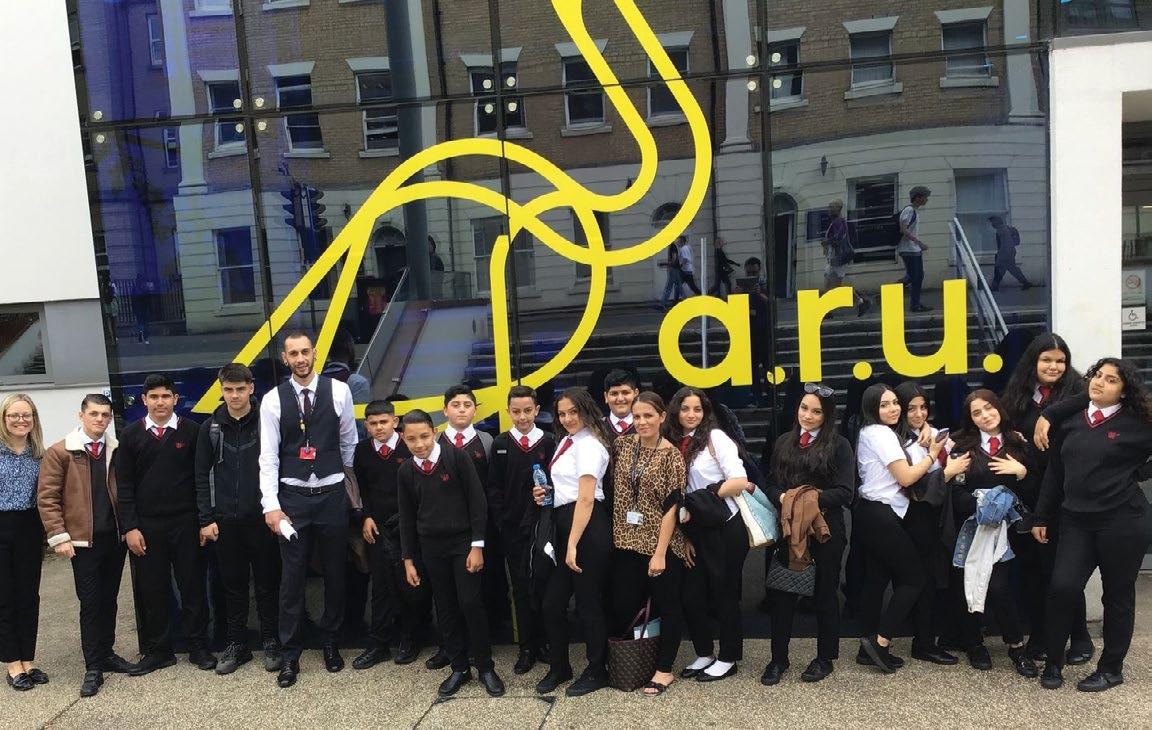
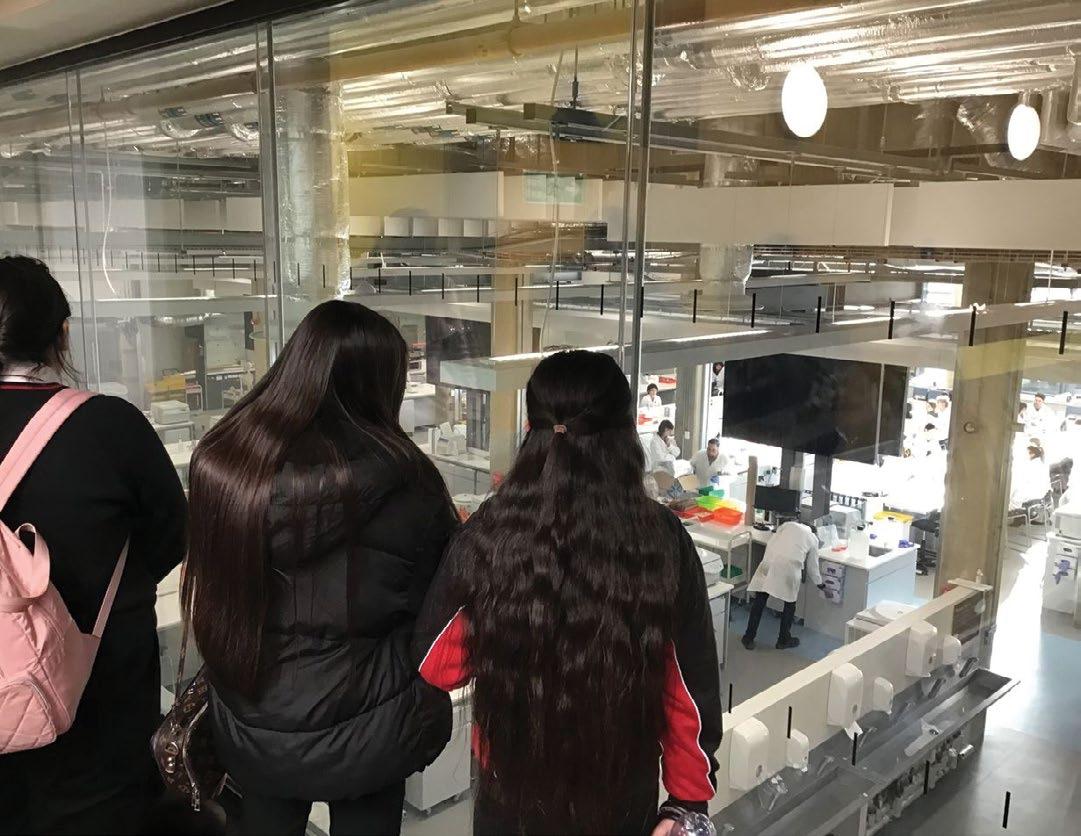
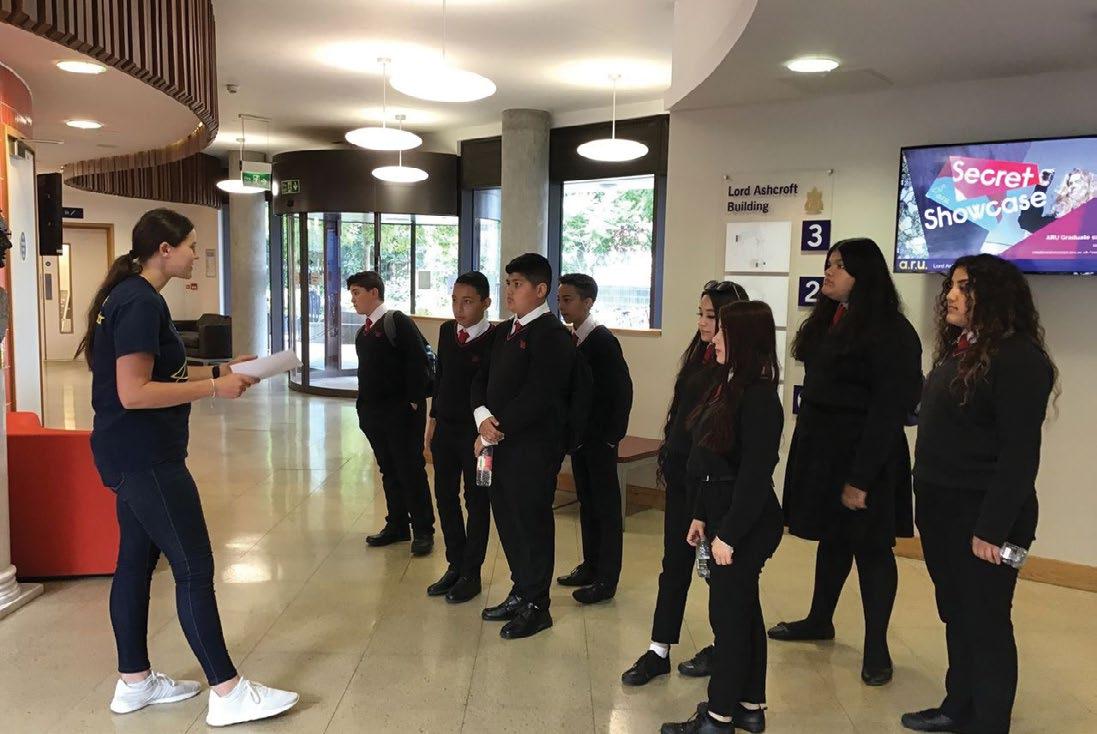
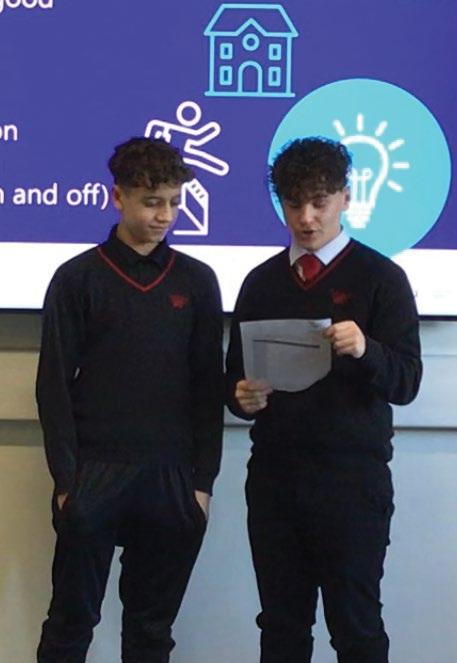
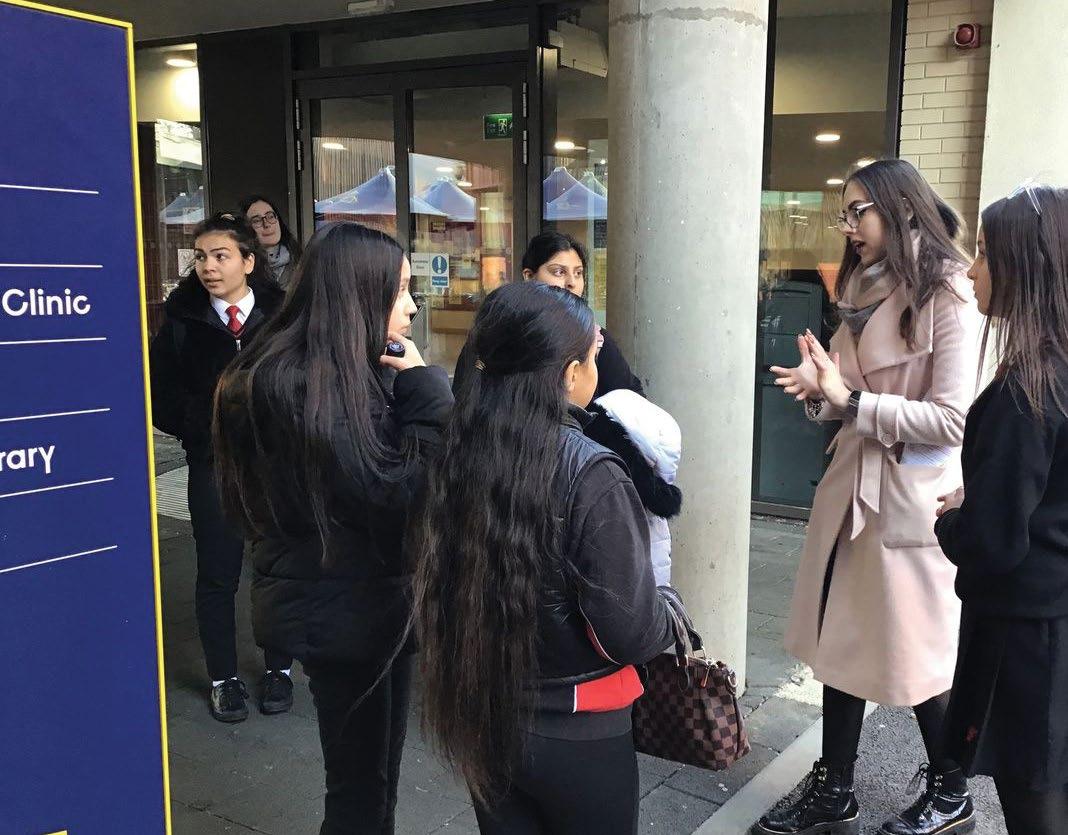
Supporting the Gypsy, Roma and Traveller community
By 19 years of age, 43 per cent of pupils from statefunded schools are in Higher Education. While this falls to 13 per cent for white, British, working-class males, it drops to just 6 per cent for working-class Travellers and 5 per cent for Gypsy/Roma.
Since 2021, Take Your Place have been supporting the Roma of Great Abilities (ROGA) project in Peterborough’s Queen Katharine Academy, in collaboration with the COMPAS charity. As part of the project’s programme of “mentoring, raising aspiration, parental engagement, raising awareness and effectiveness and promoting community cohesion,” we invite Roma students from Years 7 to 10 on a trip to one of the Anglia Ruskin University campuses. As well as a day of Higher Education-linked activities, such as a Student Life talk from Student Ambassadors, a campus tour, and information on progression routes and graduate career opportunities, the students were also invited to teach university staff and students about themselves and their heritage. We aim to show these students that learning is both a lifelong process and a two-way street, and they deliver short presentations about their culture, history, food, and more. We then continue to work with these students
after their trip as part of our wider offering to the school, and it has helped build good working relationships, with the Roma students able to identify and approach their Higher Education Champion around school. We have also supported Anglia Ruskin University’s ongoing community work, especially around Gypsy, Roma and Traveller History Month, bringing together Roma students from multiple target schools.
Feedback from staff and students has been overwhelmingly positive, with staff identifying students who have stood up to talk in front of others for the very first time in their school careers. Students especially enjoyed the opportunity to see a university for themselves and the chance to talk about themselves and their identity. Several students have told us that they enjoyed the visit so much that they now plan to go on to Higher Education. One male student told us that “I didn’t really think about university but when I went there, I really think I’m going to go to university and study there,” Whilst two young girls said the trip was “really interesting, seeing lots of nice people and beautiful places, and it changed our minds about going to university.” Take Your Place are already arranging another trip for Spring term 2024.
WORKING IN PARTNERSHIP TO SUPPORT STUDENTS FROM UNDERREPRESENTED GROUPS
SUPPORTING SERVICE CHILDREN
Participation in Higher Education for Service children is estimated to be 24% compared to 43% nationally. There are five major challenges where access to Higher Education is concerned, including a higher degree of mobility, separation from the serving parent and the unique nature of Service children’s progression to adulthood. In East Anglia there are over 1,500 secondary school Service children, with population clustered near military bases with smaller, dispersed numbers across the rest of the region.
Neaco works in collaboration with the Service Children’s Progression Alliance (SCiP) to provide support for these students and their families.
Creative Forces Day 2023
ARU were delighted to host three Creative Forces Days in November 2023 spanning across three of our campuses’. Of the seven schools that signed up, approximately 105 Service children attended our FREE day of exciting activities.
In collaboration with our Uni Connect Partners; Make Happen and neaco, students were given the opportunity to:
• Receive a subject taster delivered by ARU Student Ambassadors and Academics.
• Explore the benefits of university by interacting with current university students.
• Explore our campus and facilities.
• Enjoy a session focused on Service Child Identity through a badge making workshop delivered by Never Such Innocence
The Service Children’s Progression Alliance Hub network coordinates resources and evaluation for Higher Education Providers to lead Creative Forces Day in support of young people in Armed Forces families. It gives Higher Education Institutions the chance to bring Service Children from a variety of schools together to experience a day on a university campus and explore their identity as Service Children. Schools can also benefit by developing their understanding and awareness of how to support their Service Children.
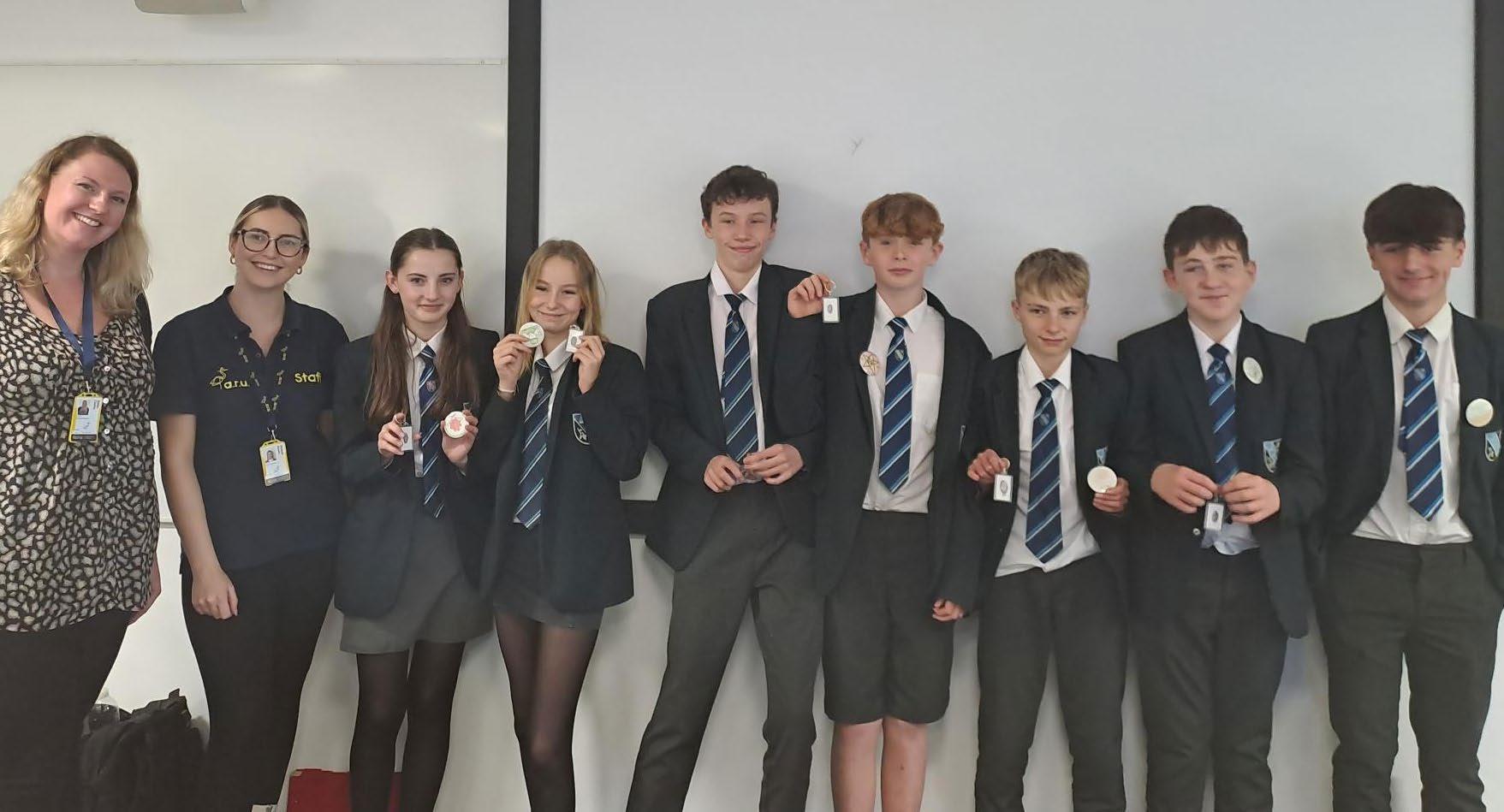
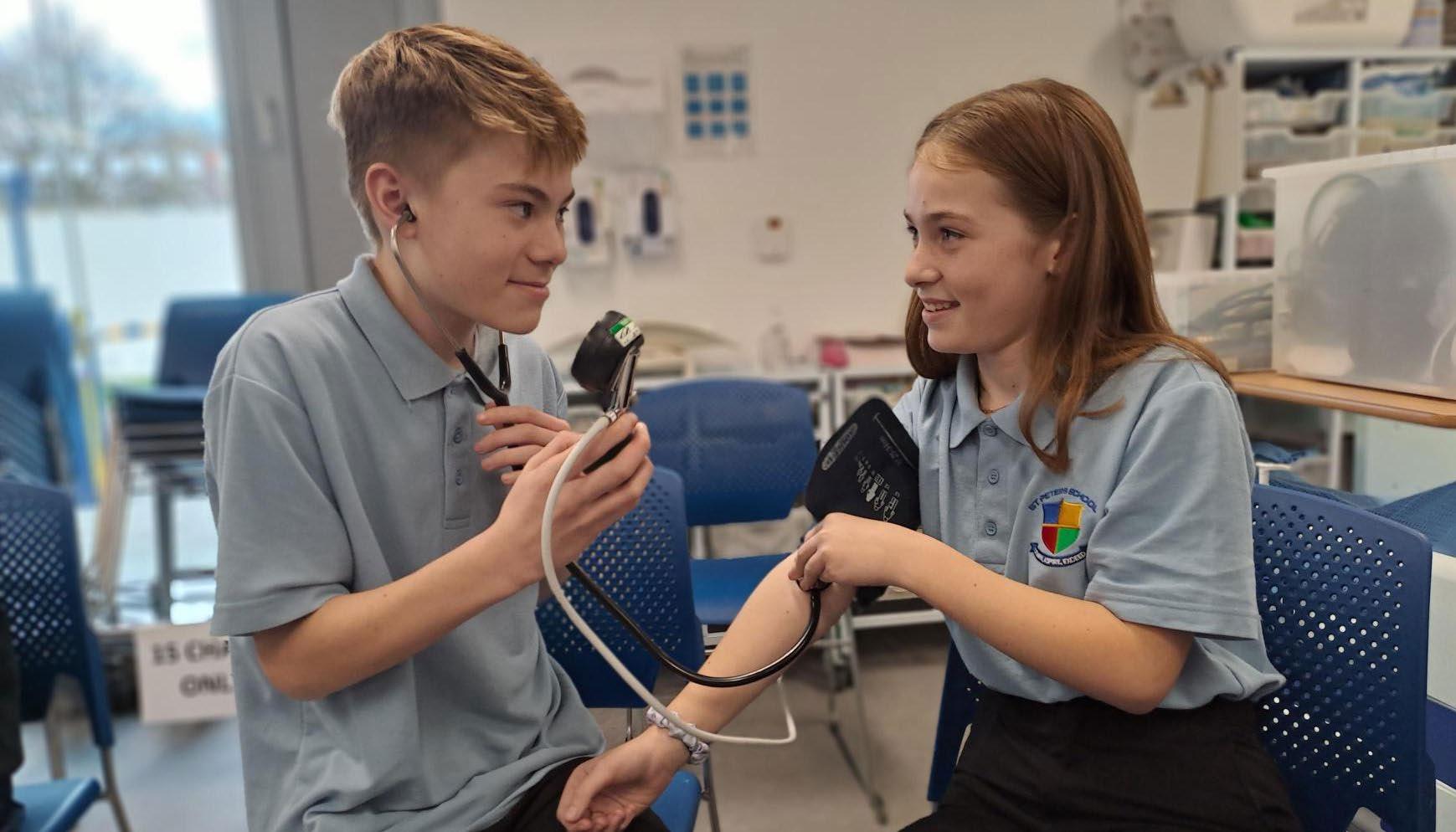
What did the students say?
82% of students reported they are now aware of the benefits of Higher Education, with 77% also agreeing that they know about the different subject areas you can study at university. 88% of students reported that they enjoyed the activities they took part in with highlights being exploring campus, getting hands on experience of a subject, and creating their own badge in reflection of their identity.
What did the teachers say?
77% of staff agreed that Creative Forces Day engaged their students and developed students’ familiarity with a university environment. 85% agreed that the day increased their students’ knowledge of academic and social benefits of Higher Education
Email: scip@aru.ac.uk to get involved with future events or learn more about the support available for your service children
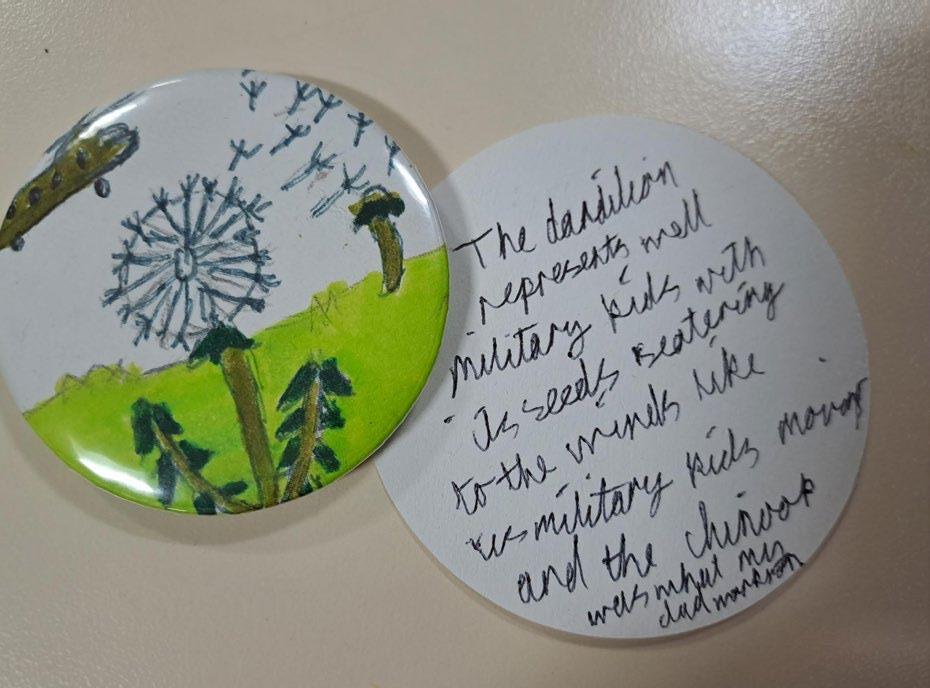
“My favourite part of the university visit today was learning what options and choices I have if I attend uni”
Year 10 Service Child
“Wonderful event! Staff were super kind, welcoming and supportive! Activities were engaging, appropriate and encouraged curiosity!”
Secondary School Teacher

Evaluation
Since the start of Uni Connect, neaco has contributed to understanding the difference the programme makes to learners. Evaluation and research have always been central to the neaco way of working: 2023 retained this focus. The evaluation reflected the shift in programme focus towards attainment raising, which saw us pilot a wide range of attainment initiatives in schools and further education colleges, alongside our ongoing provision.
The Office for Students highlights the importance of evaluation, for Uni Connect and more broadly, and emphasizes the importance of building of evidence that isolates the impact of programmes. It was therefore essential to explore how our attainment raising initiatives support learners’ academic achievement and higher education progression alongside continuing wider outreach provision.
Our evaluation is led by Dr Sonia Ilie at the University of Cambridge, whose team has been working closely with the neaco central team and many of our on-the-ground colleagues.
In 2023, the evaluation has continued to benefit from the monitoring of activity delivered by neaco and our partners via the Higher Education Access Tracker (HEAT); and from the linking of this data to individuals’ records of attendance in higher education via the Higher Education Statistics Agency.
Therefore, in 2023, the evaluation work focused on two elements: the attainment-raising pilot initiatives; and the longterm impact of ongoing continuing outreach activity on student progression into higher education. Our evaluation approach has always been at the forefront of the response to the need for robust evidence in the higher education sector, and this has remained the same in 2023.
Attainment-raising pilot initiatives
The evaluation of the attainment raising initiatives aimed to understand the deployment of these pilot initiatives, supporting both insights into their impact, and supporting their further improvement for later years.
Five of a wider number of initiatives were externally evaluated. The evaluation focused on specific learner outcomes that the existing evidence suggested were strong precursors of improved academic attainment. Each evaluation tracked the before-and-after changes in these specific outcomes, using the most recent and robust way of measuring them available. Across pilot initiatives, the evaluation also explored the continued emphasis of all neaco delivery on learners’ abilities to progress into the desired stage and type of (higher) education. Therefore, the evaluation also looked at improvements in learners’ self-confidence around higher education progression. Additionally, colleagues working in schools and colleges gathered substantial feedback from learners and other participants about how the pilot initiatives had worked, using this in the refinement and further improvement of neaco provision.
Wherever captured, the evaluation pointed to higher levels of study skills, better approaches to learning, better subject knowledge, and better self-confidence for participants after their engagement with the pilot initiatives, specific to each initiative, as follows.
A pilot initiative looking to specifically improve subject knowledge and self-confidence around higher education progression, with a specific focus on Criminology, and English GCSE saw participants rate their knowledge and understanding of the subject much better at the end of the programme than at its start.

Learners’ study skills were the focus of a further pilot initiative. Learners’ self-confidence around higher education remained consistently high across participants, and by the end of the programme, those who had engaged were responding more positively to questions around their ability to handle information and knowledge, develop ideas, and use them in academic settings
A further pilot initiative looked to improve metacognition –how learners thought and managed their own thinking and learning. While the numbers of participants were too small to draw substantial conclusions, by the end of the programme all participants were expressing very positive reflections of their ability to engage with information and on most aspects relating to their metacognitive skill, all of which had improved compared to the start of the programme.
The evaluation of a tutoring programme, building on wider evidence about the positive impact of such approaches, was indicative of good end-of-programme learner skills and approaches to learning.
Further, an arts-focused initiative providing art kits to learners who might otherwise not be able to practice their craft also saw participants reporting positive assessment of their approaches to learning and specifically of their self-confidence in doing well in their Art examinations.
Together with insights into participants’ experiences within the initiatives, the above results are supporting the improvement of future iterations of attainment raising work.
Progression to higher education
In 2023 the evaluation was able to explore actual rates of progression into higher education for our learners, specifically looking at the relationship between participation in neaco activity and subsequent rates of higher education progression.
The work made use of data linking activity records carefully assembled over the years by neaco staff in the Higher Education Access Tracker to data from the Higher Education Statistics Agency. The timing of progression means that the analysis was able to look back to the start of neaco provision and up to activity delivered up to 2021. This analysis represents a look back in time, therefore, but captures essential information about the first cohorts to have had the opportunity to engage with neaco for the entirety of their post14 educational careers.
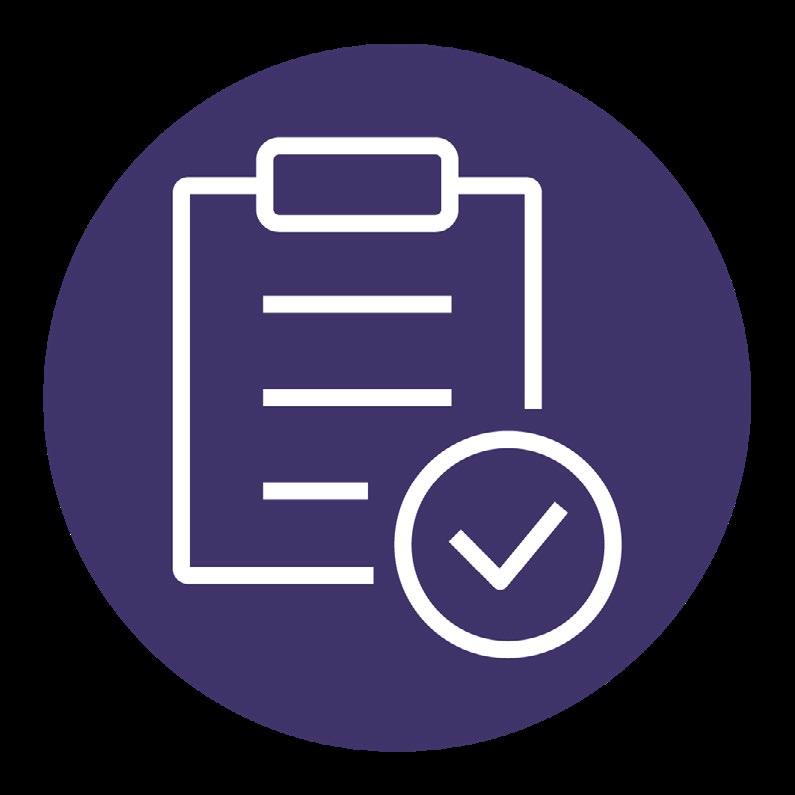
The evaluation was able to trace the higher education destinations of over 28,000 learners in the Higher Education Statistics Agency data. Of these, a third were target learners, that is, individuals who at the time of their engagement with neaco provision lived in wards with lower-than-expected higher education progression.
On average, the 28,000 learners in this evaluation engaged with 7 hours of neaco activity, with some learners doing much more. Target learners engaged on average with just under 11 hours of neaco activity, a clear indication of the programme’s realised aim of working with its target groups.
The overall rate of progression to higher education for the 28,000 learners in the analysis was 35, with most but not all learners progressing immediately after the completion of their previous studies. The closest comparison more broadly is the rate of progression for 18-year-olds. This was 39% nationally, and 37% for the East of England for the comparable period of time (2021)1
The progression to higher education for target learners in this evaluation was also high, at 29% - while a direct comparison does not exist nationally, the rate of entry into higher education for young people living in areas facing highest deprivation was 16% nationally in 2021.
The analysis showed that more engagement with neaco provision was associated with better chances of higher education progression, even after accounting for other learner and school characteristics which may, independently of neaco work, affect progression.
The evaluation team said “these results, now consistently showing a positive relationship between engagement with neaco and progression to higher education for five years running, point to a growing evidence body about how neaco supports learners in their higher education trajectories. There is always more to be done to isolate and understand in depth the impact of neaco activities on progression –we continue to work on this and contribute to the sector knowledge base with robust evidence.”
1 https://researchbriefings.files.parliament.uk/documents/CBP-7857/CBP-7857.pdf
Our finances
Neaco is funded by the Office for Students (OfS) as part of the Uni Connect Programme. During the 2022/23 academic year our total expenditure was
£2,045,417
Our primary area of expenditure is staff costs, recognising that delivering outreach activity in schools and colleges to support our students is our priority. Overall, we spent 83% on staff costs, employing around 35 staff.
Neaco is supported by our education partners, who provide in-kind funding to support our work, this includes student ambassador costs, hosting of events on campus and academic time to support the development and delivery of programmes.

Our Partners in Education
Our partners include the five universities and eight further education colleges in East Anglia. We work collaboratively to support the strategic aims of the Uni Connect programme.
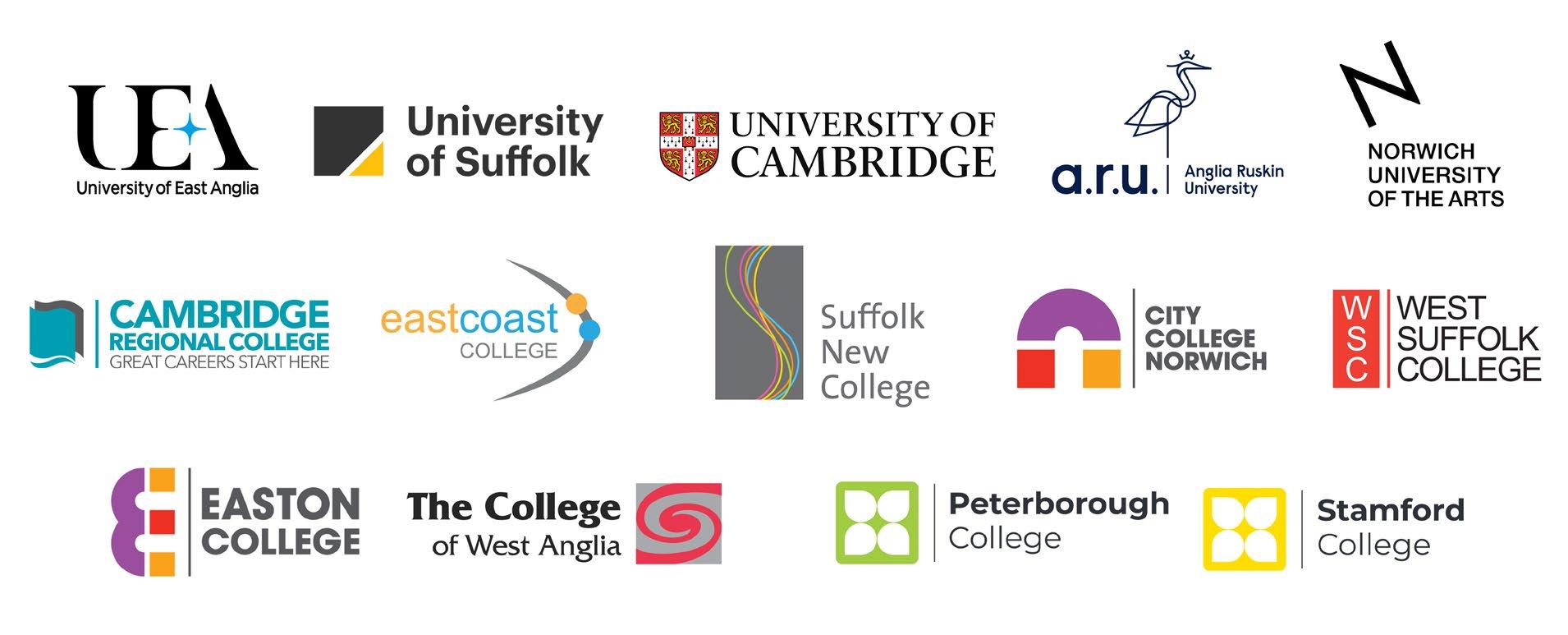

Our Partners in the Community
We are proud to be working with a wide variety of external stakeholders, including virtual schools, local enterprise companies, local authorities and councils, local artists and numerous charity organisations. These provide support with the design and delivery of our programmes, as well as supporting our team and students by providing activities, resources, CPD and useful insights on specific underrepresented groups.
Our partners include…
• Aspire Black Suffolk
• Cambridge Zero
• Careers and Enterprise Company
• Carers Trust
• Centre 33
• Children in Care Council
• Children and Young People’s Services
• CHS Group
• Compass
• Debate Mate UK
• Festival Bridge
• Future Female Society
• Inspire Suffolk
• Ipswich and Suffolk Commission for Racial Equality
• National Citizenship Service
• National Literacy Trust
• Network of East Anglian Art Teachers (NEAAT)
• New Anglia LEP
• Norfolk County Council
• Oracy Cambridge
• Pathways to Work
• Peterborough City Council
• RAF Wittering
• Service Children’s Progression Alliance
• Suffolk Refugee Support
• Talk the Talk
Moving Forward
2023/24 is an exciting time for neaco, we are always looking at new and innovative ways to support our students, parents, schools, colleges and communities.
In January we saw the launch of our new website, which has a wealth of information and resources and we would strongly encourage you to take a look at this Neaco - Supporting young people and adult learners (takeyourplace.ac.uk)

Our Communities of Practice and Working Groups are moving at a fast pace and already we have some new programmes being developed from this partnership working, including a care-experienced collaborative programme, Future You, to launch in March 2024.
Our attainment raising offer is growing all the time, with many programmes starting this year. We are looking forward to seeing the impact of these and working with schools to continue to develop our offer into 2024/25.
